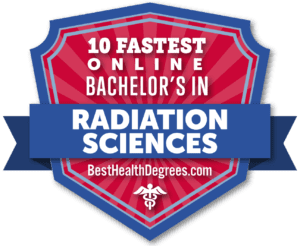
Key Takeaways:
- Radiation Sciences is a fast-growing healthcare profession with critical roles in imaging and treatment.
- Accelerated bachelor’s programs like those at the University of Iowa and University of Louisiana are available online, offering flexibility and credit for prior experience.
- Admission requirements to radiology tech programs vary. However, they generally include certification and prerequisites in anatomy, physiology, and related subjects.
- Career opportunities for radiology techs exist in hospitals, clinics, and physician offices, with higher degrees leading to supervisory roles and higher salaries.
One of the fastest-growing allied healthcare profession is in Radiation Sciences. Certified and licensed “Rad Techs” are critical team members. Operating a variety of equipment, Rad Techs provide X-rays, scans and images, used in treatment modalities.
Certified, and licensed, technologists can find employment in outpatient clinics, hospitals, and physician offices. An accelerated radiation sciences degree can get you there faster.
Best Health Degrees has identified schools that are accredited to provide Radiation Sciences education and for which financial aid is available with submission of the Free Application for Federal Student Aid (FAFSA) for qualified students. Be certain that your state will accept your chosen degree for licensure by contacting your state board.
Related:
- Best Health Care Management Bachelor’s Programs
- Top Online Health Care Management Bachelor’s Programs
- Fastest Bachelor’s Degree Programs in Public Health
- Best Radiation Sciences Bachelor’s Programs
- Top Online Radiation Sciences Bachelor’s Programs
- Accelerated Medical Billing and Coding Programs
Our Method: Ranking The 10 Fastest Online Radiation Sciences Bachelor’s Programs
To rank the 10 Fastest Online Radiation Sciences Bachelor’s Programs, Best Degrees editors researched accredited, trusted programs of all kinds. From our initial pool, we ranked programs according to price, accreditation, reputation, and salary potential, using data from IPEDS and Niche, U.S. News and World Report, and other higher education rating publications.
1. The University of Iowa
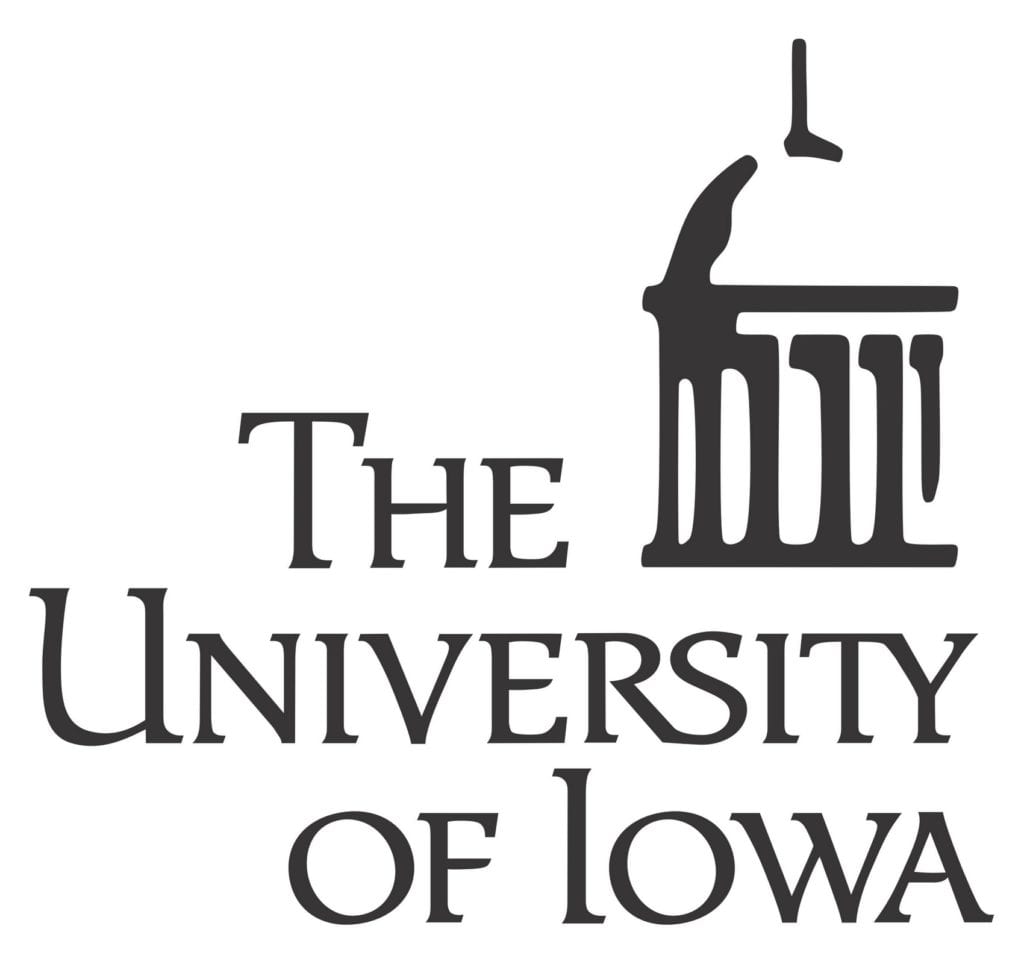
Here’s an online RT to B.S. in Radiation Sciences with multiple modalities from which you can choose for your accelerated radiation sciences degree.
Prerequisites for this program are studies in:
- Anatomy, Psychology
- Natural Sciences
- Medical Terminology
- Culture, Society, and the Arts
You’ll be able to choose a modality from:
- Computed Tomography
- Breast Imaging
- Magnetic Resonance Imaging
- Cardiovascular Interventional
- Multi-Modality Option
Among the topics covered are procedures, analysis, pathology, and sectional anatomy. There are advanced studies in Management and Leadership and Statistics if you want to move into management. Modalities don’t require an internship.
Admission requires you to pass the American Registry of Radiologic Technologists (ARRT) radiography, ARRT nuclear medicine technology, or Nuclear Medicine Technology Certification Board (NMTCB) exam. You can transfer up to 60 credit hours in RT, NMT, MRI, or CT studies towards this 120 credit hour program.
Estimated Tuition Cost: $387/per credit hour
Fast Fact: UI is ranked #46 of U.S. News and World Report’s Top Public Schools
Click to learn more about this accelerated radiation sciences program!
2. University of Louisiana Monroe
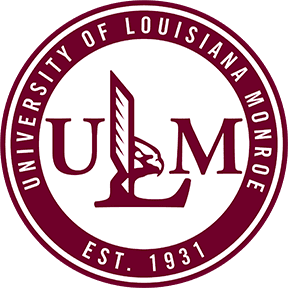
You can complete this accelerated radiation sciences RT to B.S.R.T. undergraduate degree online, at your own speed.
Based on your ARRT certification, you’ll be awarded up to 38 credit hours toward this degree with 82 credit hours remaining toward your degree. The core curriculum includes general education studies in electives of:
- Fine Arts
- Social Science
- Humanities
- Math
You’ll also study Medical Terminology and Computer Literacy. Professional coursework will cover Radiologic Technology studies and electives as well as a University Capstone Course.
Your first step is to be admitted to the University of Louisiana Monroe by completing an application and proof of your ARRT registry status. You’ll then be contacted by an admission representative regarding your application and any further information required. If you have coursework from another college or university to transfer, you’ll need to provide official academic transcripts of that coursework.
Estimated Tuition Cost: $9,199
Fast Fact: Niche rates ULM #4 Best Value College in Louisiana
Click to learn more about this accelerated radiation sciences program!
3. Oregon Institute of Technology

This Radiology Degree Completion program from OIT is offered 100% online and blends general education coursework with radiology classes.
If you’re a registered technologist, you’ll receive 89 credit hours and be required to complete (or transfer) 64 credits in general education coursework and 46 hours in professional courses. Among the professional courses you’ll take are:
- Health Care Systems & Policy
- Essentials of Pathophysiology
- Magnetic Resonance Imaging
- Mammography
- Computed Tomography
- Special Radiologic Science Externship
General education classes are comprised of Human Anatomy & Physiology, Trigonometry, Psychology, English, and Public Speaking, as well as electives.
You’ll need to be an ARRT registered technologist, be employed (or have access to an approved radiology lab), and be admitted to the Oregon Institute of Technology. Oregon Institute of Technology is accredited by the Northwest Commission on Colleges and Universities.
Estimated Tuition Cost: $205-$652/per credit hour
Fast Fact: Ranked #3 Best Value Colleges in Oregon by Niche
Click to learn more about this accelerated radiation sciences program!
4. The Ohio State University
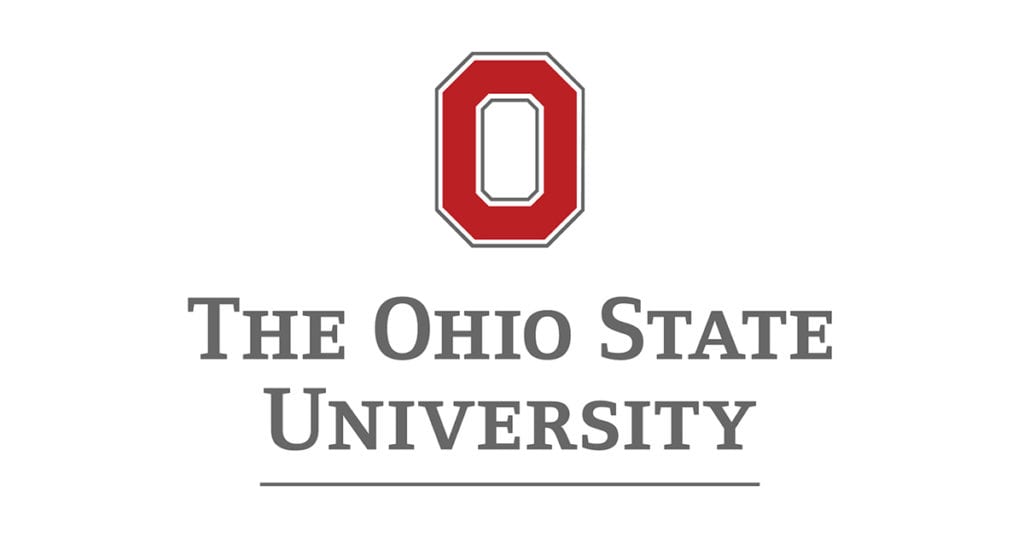
Ohio State’s School of Health and Rehabilitation Sciences supports an online degree completion B.S. in Radiologic Sciences which is tailor-made for working radiology technologists with an Associate of Science (AS) degree.
You can complete this accelerated radiation sciences degree in just two years and is specifically designed for RT professionals who are certified by the American Registry of Radiologic Technologists (ARRT), the Nuclear Medicine Technology Certification Board (NMTCB), or the American Registry of Diagnostic Medical Sonography (ARDMS). Prerequisites include studies in Human Physiology, Math, Anatomy, Statistics, Chemistry and Biology. This program’s curriculum covers Pharmacology, Evidence-Based Practice in the Radiologic Sciences, Quality Management in Radiologic Sciences, as well as two Advanced Radiography Practicum.
To apply for this B.S. degree, you’ll need to complete prerequisite courses, have a 2.5 GPA, complete the school’s online application, proof of RT certification, and letters of recommendation.
Estimated Tuition Cost: $17,796-$18,396/program total
Fast Fact: Niche ranks Ohio State as the #1 Top Public University in Ohio
Click to learn more about this accelerated radiation sciences program!
5. East Tennessee State University
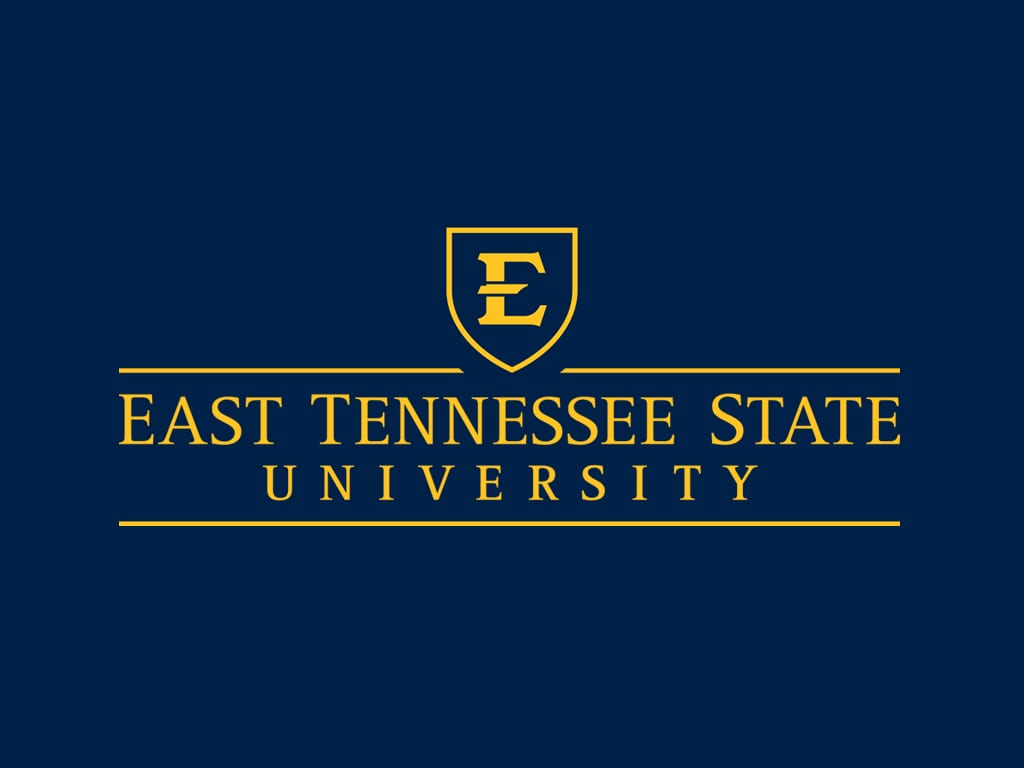
If you hold an Associate in Applied Science (AAS) degree, you may want to explore ETSU’s 100% online Radiologic Science completion program.
Prerequisites are required in Anatomy and Physiology, Intro to Microbiology, Patient Care and Assessment, and others listed on the website. You’ll also take General Education studies in:
- Communication
- History
- Natural Sciences
- Mathematics
- Humanities and Fine Arts
- Social and Behavioral Sciences
There are courses in:
- Radiographic Equipment
- Advanced Radiologic Imaging
- Radiographic Procedures
- Digital Imaging
- Clinical Education
- Radiographic Imaging
- Quality Assessment
ETSU offers several admission scenarios and you’ll want to see which criteria applies to you. You’re also encouraged to contact an Admissions Counselor for additional information. You can even schedule a video call with an admissions representative.
Estimated Tuition Cost: $10,472 (tuition per year)
Fast Fact: Niche ranks ETSU #4 in its Top Public Universities in Tennessee
Click to learn more about this accelerated radiation sciences program!
6. Georgia Southern University Armstrong

You’ll have the choice between two options with this B.S. in Radiologic Sciences (BSRS) degree completion from Georgia Southern University.
Both the B.S. and the Bridge Program are offered online. You need to be registered or registry-eligible to enter the B.S. Special Options track and concentrate on Nuclear Medicine, Sonography, or Radiation Therapy. Requirements for this option include general education coursework and classes in your concentration. You’ll be expected to do clinical work as well. The Bridge Program offers clinical and non-clinical studies and is intended for students who are ARRT, NMTCB, or RDMS ARDMS certified.
Once admitted to Georgia Southern University, you’ll need to make an application for the Radiology Sciences programs, provide proof of certification, and have a 2.5 GPA. Additional information will be required, especially with the Bridge Program.
Estimated Tuition Cost: $5,256.00
Fast Fact: GSU is ranked #183 in U.S. News and World Report’s Top Public Schools
Click to learn more about this accelerated radiation sciences program!
7. University of New Mexico
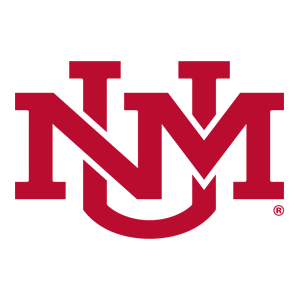
You can complete your undergraduate education and earn a B.S. in Radiologic Science from UNM through this degree completion program.
Offered both as a full-time or part-time curriculum, you’ll take English, math, communications, and psychology courses before taking radiology coursework. Among those courses are:
- Health Ethics and Diversity
- Healthcare Delivery and Compliance
- Cross-Sectional Anatomy
- Cross-Sectional Pathology
The degree requires 123 total credits which includes UNM coursework and 54 transfer hours from your RT experience.
Although not specifically discussed, as a degree completion degree, it’s assumed you need to have an Associate degree for admission. Additionally, you’ll need to complete a UNM admission application, submit a $25 application fee, and provide official academic transcripts. You may be asked for other documents as well. ACT/SAT test scores are not required.
Estimated Tuition Cost: $11,210 (in-state)
Fast Fact: Ranked #32 of 1,503 on Niche’s list of Colleges with the Best Professors in America
Click to learn more about this accelerated radiation sciences program!
8. Kent State University

If you have an Associate degree, Kent State provides an online Bachelor of Radiologic and Imaging Sciences degree in Computer Tomography and/or Magnetic Resonance Imaging.
Taking as few as 9 months, the degree requires 120 credit hours. You’ll study general education courses in Social Sciences, Humanities and Fine Arts, as well as classes in your chosen track. CT students will study patient management, image production, CT procedures, research, and more. MRI track students will do coursework in MRI Procedures, Pathophysiology for Medical Imaging, Leadership in Medical Imaging, etc. The two tracks somewhat overlap in requirements, such as clinical experiences.
To be admitted, you’ll need to hold an Associate degree, or certificate from a hospital-based radiology program, and be registered by the American Registry of Radiologic Technologists (ARRT or NMTCB). Other admission information may be requested by the university.
Estimated Tuition Cost: $16,100 (based on transfer credits)
Fast Fact: US News & World Report ranked Kent State #126 in its Top Colleges
Click to learn more about this accelerated radiation sciences program!
9. Cambridge College of Allied Health and Technology

If you’re currently licensed as an RT and want to advance your education, you may want to look into the Bachelor of Science in Radiologic Sciences at Cambridge College of Allied Health & Technology. An Associate degree is required.
This particular program offers online classes in:
- Pathophysiology
- Statistics
- Advanced Sectional Anatomy
- Health Education Training Development
- Abnormal Psychology
- Quality Management
- Microcomputer Applications
The program requires 120 credit hours and you’ll be awarded 75 credit hours for your Rad Tech associate program, and completion of 21 hours general and prerequisites. Cambridge holds accreditation from The Accrediting Bureau of Health Education Schools (ABHES) and is approved by the American Registry of Radiologic Technologists (ARRT).
General admission requirements for Cambridge College of Allied Health and Technology include an online registration form. Once your registration form is received, you’ll be contacted by an admission advisor regarding your next steps.
Estimated Tuition Cost: $15,330/per academic year
Fast Fact: Cambridge has four campuses located in Georgia and Florida
Click to learn more about this accelerated radiation sciences program!
10. St. Catherine University
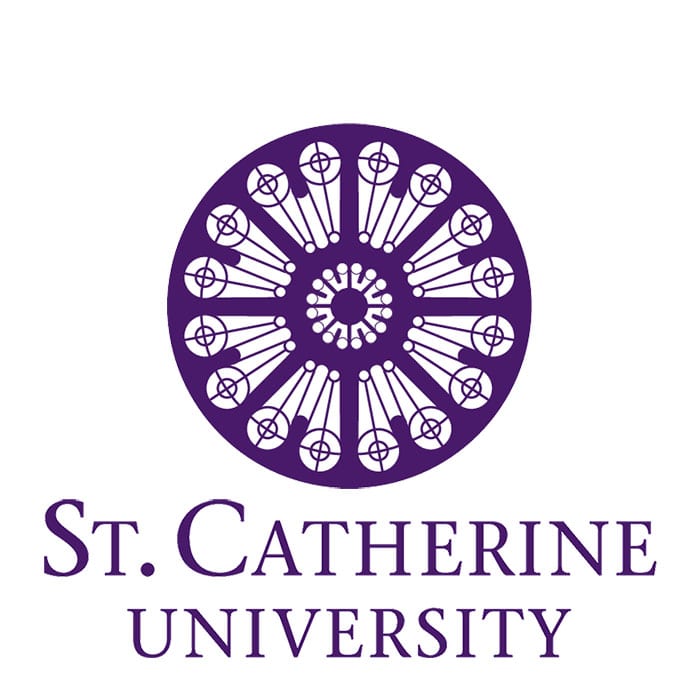
Identifying itself as a “College for Adults”, the Henrietta Schmoll School of Health at this St. Paul, MN university offers an accelerated radiation sciences degree completion in Radiation Therapy.
This hybrid program takes approximately 12 months to complete and offers two tracks: an accelerated program for those students who are certified in radiology and those who have a baccalaureate degree in any field. There are three core courses required in calculus, statistics, and ethics. Major studies include:
- Pathology
- Patient Care in Radiation Oncology
- Introduction to Radiation Therapy
- Dosimetry and Treatment Planning
Admission into the Radiation Therapy major at St. Catherine’s requires you to have an accredited bachelor’s or associate degree with a 2.7 GPA, hold American Registry of Radiologic Technologists (ARRT) certification, and have completed core liberal arts studies.
Estimated Tuition Cost: $50,560
Fast Fact: Ranked #7 in Niche’s Best Women’s Colleges in America
Click to learn more about this accelerated radiation sciences program!
What Are The Advantages Of An Accelerated Radiation Sciences Or Therapy Degree?
We’ve all heard the expression, the early bird catches the worm. Accelerated educational programs can give you a head start on employment or advancing your existing career.
Accelerated programs offer students immersion in their field and can typically be completed in 2-3 years. General education coursework is usually required as well as topics in your major. Radiation Science and Radiation Therapy call for studies in anatomy, physiology, and physics, as well as clinical experiences.
Accelerated undergraduate programs frequently will award you credit for skills/studies in which you’re proficient. If you’re working in radiologic services, you may have experience that might allow you to receive academic credit for what you know. Additionally, military veterans may be awarded academic credit for training programs completed during their service.
You’ll also find that accelerated bachelor completion degrees will require less general education coursework and may not require clinical experiences if you’re currently working as a radiologic professional.
Last, but not least, is the school cost. Online, accelerated degree programs frequently don’t charge out-of-state tuition for out-of-state students, but offer a basic, online tuition cost.
What Can I Do With An Accelerated Radiation Sciences Degree?
Careers in Radiation Science or Therapy are ranked #15 in U.S. News and World Report’s Best Healthcare Support Jobs and #15 in 100 Best Jobs. You can find employment in hospitals, outpatient clinics, women’s breast centers, and physician offices, depending on your certification and licensure. There are two titles in Radiation Science: technician and technologist. Both work with patients and physicians in obtaining X-rays and imaging scans. The major difference between the two designations is education.
Technologists usually have, at minimum, an Associate degree and more frequently, a Bachelor’s degree. Technicians receive their training at vocational schools or an Associate degree. Salaries are tied to the title with technicians earning an average of $44,380 annually and representing approximately 10% of the Radiation Science field. Technologists may earn a median salary of $60,510 and make up the remaining 90% of the field’s professionals.
Depending on your specialty, you’ll work with patients in obtaining diagnostic images and scans through the use of:
- X-ray
- Computer Tomography (CT)
- Magnetic Resonance Imaging (MRI)
- mammography
- ultrasound/sonography
As a Radiation Therapist, you’ll work with physicists, oncology and radiation oncologist physicians, nurses, and patients to isolate and treat cancer sites using dosimetry, and linear accelerators to provide measured radiation doses to tumor sites.
The higher your degree, the greater your chances of advancing your career to a supervisory or managerial role. Many employers will prefer a bachelor’s prepared applicant who presents with certification and licensure.
What Is Medical Radiation Science And Therapy?
Radiation Sciences encompasses the use of medical images from X-rays, ultrasound, sonography, Computer Tomography (CT), and Magnetic Resonance Imaging, (MRI), in the diagnosis of disease or illness. Images taken by the technician are used not only in diagnosing illness and disease but also in developing treatment plans.
The therapeutic aspect of Radiation Sciences involves the treatment of cancer and certain diseases with brachytherapy, radiopharmaceuticals, and systemic radiation therapy. Palliative radiation therapy is used to control symptoms such as pain. These professionals work with oncologists, radiation oncologists, physicists, nurses, and patients.